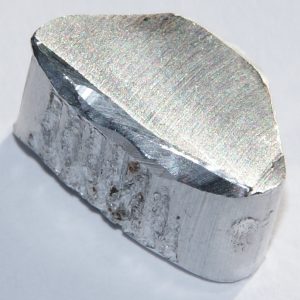There might be trade war brewing over steel and aluminum. But another trans-Atlantic war has already been raging for a couple of centuries over one of those heavy metals. Which came first: American aluminum or British aluminium? Continue reading
Category Archives: Spelling
In the news: A spelling fail in the Prat(t) Tribune …
A headline on Saturday in the (appropriately named) Pratt Tribune (sic). As reported by Mashable and others. And yes, there is a paper with that name (although Brits won’t believe it.) At least it has a double ‘t’…
***
X v Y: When it comes to the line, do you “tow” it or “toe” it?
Do you toe the line …
… or tow the line?
Are towing and toeing both correct, when it comes to the line? Glosso’s X v Y series takes a look … Continue reading
Bus, buses, busses
According to Grammarist:
“Notwithstanding Great Caesar’s assertion regarding ‘busses’ as being a kiss (an archaic definition retained only in very few dialects), busses is commonly accepted as the correct form for the verb ‘to bus’ as in he/she/it busses. Buses is the plural of the noun ‘bus’.”
You can hear the singular “buss” in this song, ‘Spin on a Red Brick Floor’: take it away, Nanci Griffith:
Busses,
Glosso
xoxo
Hat tip to Rona
A solar eclipse glossary
In a week’s time, on August 21, a total eclipse of the sun will dim American skies; it will be the first such eclipse to be seen in the continental United States in 38 years, making it the cosmic episode of the decade. In 1925, the New York Times described a solar eclipse as “the most magnificent free show nature presents to man.” Glossophilia takes a rocket-ship ride through some of the light-fantastic lingo of solar eclipses (definitions courtesy of the OED and NASA). We’ll also ask an important and relevant spelling question: should we capitalize “Sun”, “Moon” and/or “Earth” when we’re writing about this heavenly happening? Continue reading
In the news … The importance of good spelling (in dating and in life)
Spelling is important. It can affect your chances of getting a job, your love life, and it can make us appear less intelligent than we are. A recent BBC article spells it all out for us.
“Research shows that as soon as people spot a spelling mistake on a website they’ll often leave it because they fear it’s fraudulent.
Corporations are aware that a portion of their image rests upon correct writing and spelling, says Roslyn Petelin, associate professor in writing at the University of Queensland in Australia. ‘Nothing can make you lose credibility more quickly and seem uneducated than a spelling mistake, and that includes apostrophes,’ she says.
… Indeed, a lack of a certain level of proficiency may be a barrier to getting a job at all. A lot of employers in Australia now ask candidates to take writing tests, says Petelin. ‘Young people coming out of university may have all the right interpersonal skills, but if they can’t write coherently, employers won’t give them a job.’
Poor spelling can even affect your dating chances. A Match.com survey found that 39% of singles judged the suitability of candidates by their grammar.”
Read the full story at the BBC.
***
Forensic linguists play part in 20-year-old murder case
What exactly is — or are — “forensic linguistics”? It’s the application of linguistic knowledge, methods and insights to the forensic context of law, language, crime investigation, trial, and judicial procedure. Here’s an example of it.
Retired FBI agent James Fitzgerald is one of the U.S.’s most prominent forensic linguists: as well as advising on some of TV’s popular fictional crime and forensics shows, he was on the investigative teams of two high-profile criminal cases of the last couple of decades: the Unabomber, and the murder of JonBenét Ramsey in 1996. The Ramsey case was recently back in the news, with a new TV documentary detailing a new, independent investigation of that 20-year-old crime. As part of the new investigative team, Fitzgerald returned to the scene of the crime to analyze in detail the notorious ransom note that became such a mysterious and vital part of the unsolved homicide. He talked to Yahoo TV about the significance of that 370-word document, and the various things it revealed about the person who wrote it. Here are a couple of excerpts from that interview: Continue reading
A short proofreading quiz on National Proofreading Day
Fancy trying your hand at a bit of proofreading, on National Proofreading Day? See if you can catch all the spelling, punctuation and grammatical errors in the five sentences below. A clean copy will be posted tomorrow. (Clue: you should be able to spot at least 10 errors, and a few more.) Good luck! Continue reading
An unpresidented spelling quiz on World Spelling Day
On World Spelling Day, Glossophilia hear by presents an unpresidented spelling quiz on the subject of America’s 45th precident of the United States of America — “one of the dummer people on television” (Donald Trump — not about himself — in a June 2015 pre-presidenshal tweet). How many spelling errors can you count in the President’s tweets illustrated below? Continue reading
The spelling (& Jerkish) of the President: update
 We are humbeled, Mr President.
We are humbeled, Mr President.
UPDATE:
As the great American novelist Philip Roth has recently commented to the New Yorker: “Whatever I may have seen as their limitations of character or intellect, neither [Richard Nixon nor George W. Bush] was anything like as humanly impoverished as Trump is: ignorant of government, of history, of science, of philosophy, of art, incapable of expressing or recognizing subtlety or nuance, destitute of all decency, and wielding a vocabulary of seventy-seven words that is better called Jerkish than English.”
~~~~~










